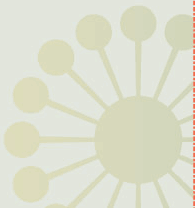TEXTUAL
CRITICISM AND THE SEARCH FOR TRUTH The Christian Bible is filled with so many inconsistencies, errors of fact, aberrant behavior sanctioned by a deity who appears to be mercurial, wrathful, loving, vengeful, forgiving, sadistic, dictatorial, tolerant, and filled with loving-kindness and mercy. And yet we can discern within the pages of Scripture the eternal verities that shape and guide our pilgrimage through life and inform us of our ultimate destiny beyond this life. The life of Jesus of Nazareth as portrayed in the gospels is not unique to Christianity. The virgin birth, a divine incarnation, the dying-rising god, as well as many of the words attributed to Jesus can be found in much older sources beginning with that of ancient Egypt where the myths of Horus, Osirus and Ra remarkably parallel the New Testament accounts of the life of Jesus. Indeed, scholars of comparative religions can find as many as fifty avatars in spiritual disciplines throughout the world and throughout the ages that closely emulate the Christian beliefs about Christ. Christianity arose out of Judaism which itself carried into its cultus many of the Egyptian religious theories gleaned from the Hebrew sojourn in Egypt. Christianity was also influenced by Zoroastrian beliefs that entered Judaism during the post-Exilic period, the Hellenistic cult of Dionysius, and cult of Mithra, popular with the Roman legionaries. That Christianity is a syncretistic religion by no means denigrates its validity. Rather, it affirms core truths of a universal consciousness and of a God that is apprehended mystically more so than historically. The Bible is a map, not a destination. It was not intended to be taken literally, or to be worshiped. The Bible is not the Word of God, but rather contains the word of God as it is discerned and interpreted. It is only when the word is enfleshed and made alive and interpreted through experience, tradition, reason, and revelation that it can be said to be truly God speaking to us. The Academy of Spirituality and Paranormal Studies, Inc., in seeking to discern how paranormal phenomena may enhance the development of the human spirit, should not be hindered by narrow interpretations or methodologies, nor limited in its search for truth. There are times when the empirical method is appropriate, but we have come to realize that reality often transcends Aristotelian cause-and-effect logic. In the same way, practitioners of religion should not be limited by literal interpretations of ancient texts, but seek greater understanding through metaphoric and symbolic perceptions that guide to a more expansive understanding of the truth. Dr. Harry L. Serio |
|
